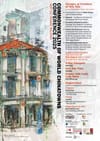CWC envisions creating discourse that can steer conflicts towards consultations
- CWC’s Penang Peace Dialogue: A proposed annual platform to bring together global statesmen, intellectuals, and peace advocates to discuss conflict reduction through constructive dialogues.
- ASEAN as the Mediterranean of Asia: Prof Tay Kheng Soon urges Southeast Asia to lead global discourse, balancing China’s rise with Western influence while uniting developing nations.
- Dialogue for a changing world: In a world where conflicts tend to escalate rapidly, the call for dialogue as an antidote to hostility is both timely and urgent.
By Ian McIntyre
DIALOGUES as a platform for meaningful engagement are often rebuffed when societies are locked in disputes, especially in the case of wars. In today’s world, conflicts can escalate rapidly, fueled by relatively low-cost weaponry such as drones designed to inflict widespread targeted damage. The absence of restraint has turned many disputes into prolonged tragedies. Against this backdrop, the call for dialogues as an antidote to hostility is both timely and urgent.
At the recently inaugurated Commonwealth of World Chinatowns (CWC) Conference in Penang, founding member Winfred Khoo called on participants to contribute to the long-standing discourse on peace and conflict resolution. Khoo proposed that the CWC help to press the “pause” button on hostility and muffle the drumbeat of conflict. His idea is to establish a dedicated session at the next conference, tentatively named the CWC’s Penang Peace Dialogue: Peace in Space, Prosperity on Earth.
Khoo explained that Penang, with its long-standing reputation as a centre of intellectual exchange, cultural diversity, and openness, is the ideal venue to host such a platform. He envisions inviting respected statesmen such as former Minister for Foreign Affairs of Singapore, George Yeo Yong-Boon, who had attended the CWC inaugural meeting in Penang in 2024; Dato’ Dr Ooi Kee Beng, executive director of Penang Institute who’s attended and spoke at the recent CWC Conference 2025 and perhaps, former Coordinator, Asia Peace Programme and former UN Security Council president, Kishore Mahbubani—all known for their measured and peace-loving perspectives.

The Penang Peace Dialogue, Khoo added, could become a signature moment for future CWC conferences, anchoring its role beyond trade and culture to include the fostering of global understanding.
Dialogues as bridges to explore core interests
Beyond peace efforts, Khoo highlighted that dialogues can also serve as bridges to explore CWC’s other core interests, including the adoption of new technology, promoting holistic healthcare, incorporating Traditional Chinese Medicine, Ayurvedic Medicine and Homeopathic Medicine that goes beyond treatment-based models, and even inspiring conversations around the future of space exploration.
“Dialogue is not only about ending conflict — it is also about shaping aspirations for humanity’s next frontiers,” he said.
Khoo’s proposal draws inspiration partly from his fellow CWC co-founder, Professor Tay Kheng Soon, a Singaporean architect, urbanist, and public intellectual. For Tay, dialogue is an intrinsic part of the ASEAN identity. He recalled his involvement in the Asian Dialogue Society (ADS), an informal grouping once supported by Malaysian Prime Minister Datuk Seri Anwar Ibrahim and led by the late Dr Surin Pitsuwan, Thailand’s former foreign minister. Surin believed that ASEAN, with its 10 member states — soon to be 11 with East Timor’s entry — could play a central role in extending dialogue across socio-political divides in Asia.

ASEAN as the Mediterranean of Asia
Prof Tay has long described ASEAN as the “Mediterranean of Asia” — a region blessed with diversity, temperate climates, and a rich cultural tapestry. These qualities, he argued, make Southeast Asia the natural stage for conversations among world leaders. However, he cautioned that developing nations must cultivate new mindsets in the face of shifting global realities. The rise of China, the persistence of Western hegemony, and the polarisation of politics all point to the need for balance.
“We live in a multipolar world,” Tay said. “We must adjust, or risk being left behind.”
Reviving platforms for dialogues
Former Balik Pulau MP Yusmadi Yusoff echoed this sentiment. Through his RIGHTS Foundation, he has been advocating for the revival of ADS and other platforms for dialogue. Yusmadi emphasised that dialogue is not merely an intellectual exercise — it is a necessity in an era of rapid change. From artificial intelligence and digitalisation to climate emergencies and global trade tensions, he argued that dialogue is the only way small and medium-sized nations can navigate uncertainty without succumbing to violence.

“Discourses have always been a part of Malaysia’s culture,” Yusmadi noted. “We must now scale this culture into the ASEAN framework, so that dialogue becomes a norm in conferences, summits, and forums.” He described dialogue as a new ethic of human interaction — one that must replace violence, coercion, and bullying in international relations.
In an era defined by global disruption, the CWC’s proposed Penang Peace Dialogue offer a hopeful reminder that the world can still choose conversation over confrontation.





